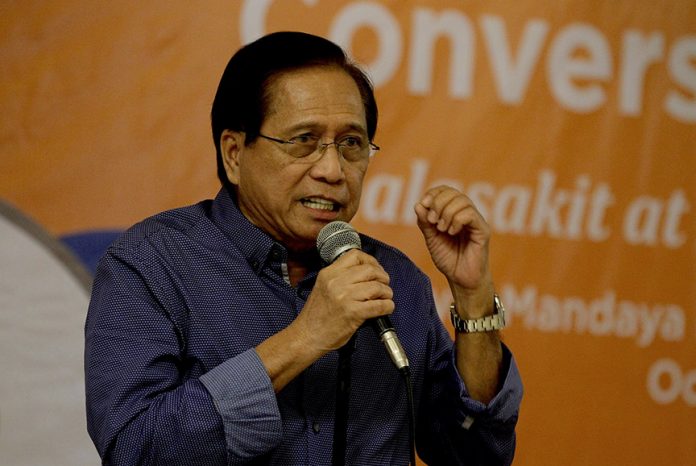To address the root causes of armed rebel resistance to the government, Presidential Adviser on the Peace Process Jesus Dureza says the government is open to amending the 1987 Constitution.
“If you look up what they [rebels]are aspiring for, you have to open up our Constitution to accommodate them, and that is the reality,” Dureza said in his remarks during the recent Konsult Mindanao Peace Conference in Davao City.
Dureza noted that the existing Philippine Constitution had become a “stumbling block” in negotiating peace with the Moro Islamic Liberation Front (MILF), Moro National Liberation Front (MNLF), and National Democratic Front of the Philippines / Communist Party of the Philippines-New People’s Army (NDFP/CPP-NPA).
“They will never agree that they [NDFP/CPP-NPA, MILF, MNLF] would be circumscribed by a constitution or our laws if you talk to them,” Dureza explained, adding that the agreements previously signed with the major rebel forces made no reference to the 1987 Philippine Constitution.
He pointed out that the discussions on peace process are anchored to the international laws and protocols.
Dureza explained that, as government negotiators, they had to work within the “confines of the Constitution” to continuing to work on a final peace settlement despite opposing views and ideologies of both parties.
However, the head of the government peace process pointed out the desire of President Rodrigo Duterte to shift from a bicameral and presidential form of government to parliamentary and federal will require constitutional reforms.
It could also open up to other changes in response to President Duterte’s call for a more inclusive economic development strategy and direction.
Dureza mentioned that the failure of Congress to pass the Bangsamoro Basic Law (BBL) could be attributed to some “perceived unconstitutionality” of several provisions of the proposed bill.
Instead of refilling an improved version of BBL, Dureza said the controversial provisions of the BBL could be included in a proposed new charter.
Amending or writing a new charter could also accelerate the peace negotiations with the NDF, Dureza further added.
The government peace panel is set to leave for Rome in Italy on January 18-25for the third round of talks with the NDF.
Topping the agenda in the Rome round of talks are the social and economic reforms that the rebels are putting across the negotiating table.
Negotiators from both sides are also expected to tackle and agree on the mechanics and guidelines for a bilateral ceasefire agreement and political and constitutional reforms.
Meanwhile, Dureza underscored the need to strengthen further and expand the existing “peace tables” to ensure the success of the ongoing peace talks between both the Philippine Government (GPH) and rebel groups.
Dureza pointed out that the “negotiation tables” for the Reds are “very small tables” compared to the “bigger peace table” which is the general public.
“If we cannot get the larger audience to know what is happening in the peace table[s] first, and if the public doesn’t understand what we are doing, chances are people will reject what we agree on in [those] the negotiations table,” Dureza added.







